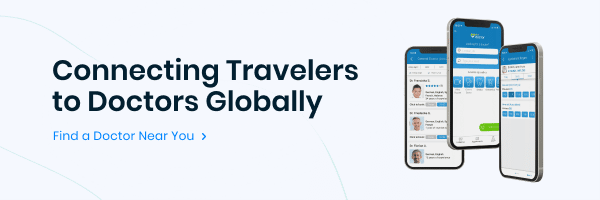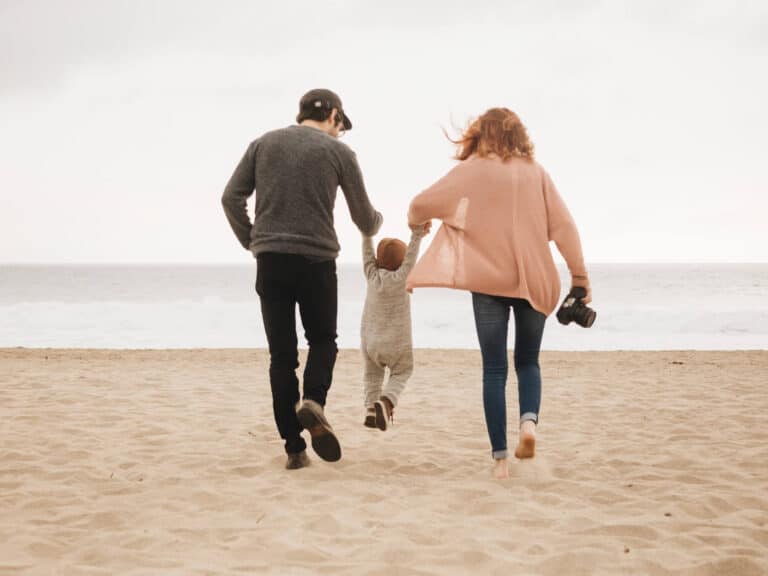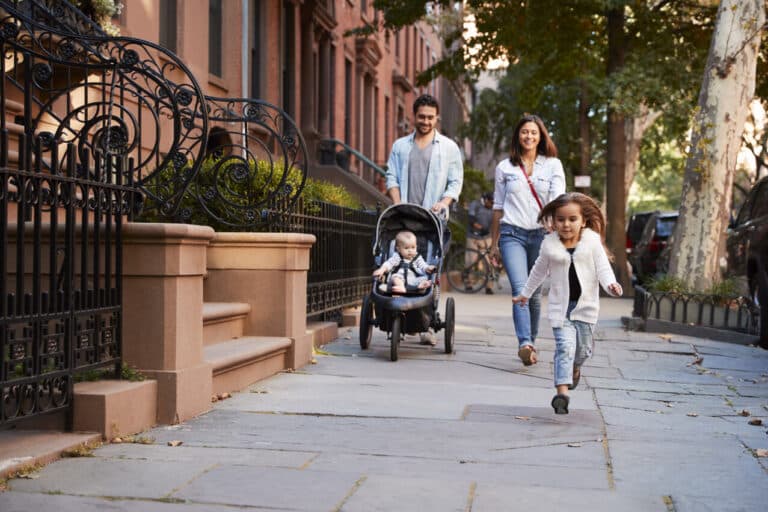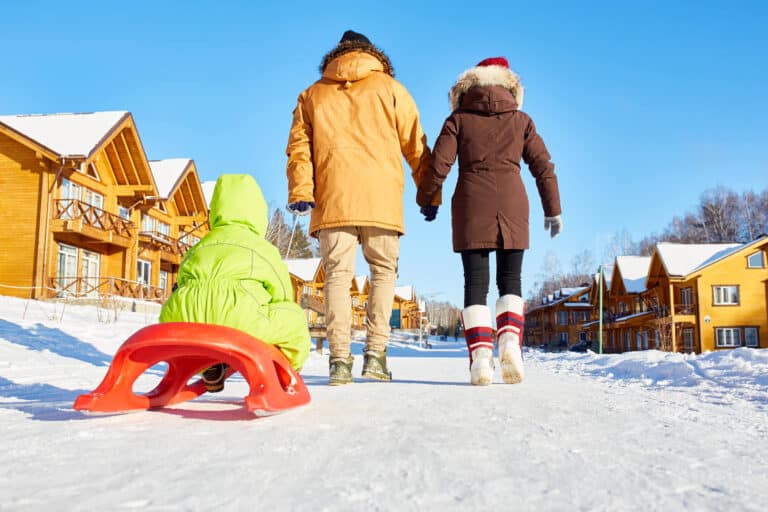Updated: 19 April 2022
When you’re traveling to a different time zone, your body and mind are going to need some time to catch up. The good news is you don’t need to battle with sleepless nights and groggy days when you know how to reset your internal sleep clock.
Here’s what you need to know.
How Your Internal Sleep Clock Works
There is a reason we feel sleepy around the same time each night and why, even if we don’t set an alarm, we will usually wake up at the same time in the mornings. As long as we aren’t pulling all-nighters or traveling across several time zones, our bodies tend to want to follow consistent sleep patterns, which is key for getting the quality sleep we need.
The term “sleep clock” refers to several biological mechanisms that control the cycle of wakefulness and tiredness, led by the hypothalamus and certain nuclei in the brain called suprachiasmatic nuclei (SCN). It is also called the circadian rhythm.
When functioning optimally, this rhythm is the reason why we feel sleepy around the same time and wake up at the same time. As far as timing goes, sleep schedules vary from person to person. Science doesn’t quite understand everything yet, but essentially the body’s internal clock is influenced by a combination of external cues – like sunrise or sunset and temperature; as well as internal cues – like hormones, neurotransmitters, and genetics.
Why Your Circadian Rhythm Gets Thrown Off
Because our body clocks are sensitive to light, even things like how much sunlight we’re exposed to throughout the day and what types of light we’re exposed to at night affect our sleep.
In addition, things like traveling across time zones or staying up a lot later than usual can affect our sleeping patterns because we’re asking our bodies to sleep at different times than our bodies’ internal clocks are telling us to sleep. So, if you work night shifts, pull all-nighters (whether it’s studying or bingeing on Netflix), or experience jetlag, your internal clock might be off.
This is problematic because if you have a misaligned body clock and sleep schedule daily, it can cause poor sleep quality. Over time this misalignment has been linked to several chronic health problems, like sleep disorders, obesity, diabetes, anxiety, bipolar disorder, and seasonal affective disorder, among others.
In fact, having a severely misaligned body clock is considered a sleep disorder itself. About 1% of adults have advanced sleep phase disorder, meaning they go to bed early (between 6 PM and 9 PM) and wake up early (between 1 AM and 5 AM).
While younger people specifically might experience the opposite: delayed sleep phase syndrome (DSPS) or going to bed extremely late and waking up late. Estimated to affect as many as 15% of teenagers.
You can reset your circadian rhythm. However, it’s important to understand your own individual circadian rhythm. If you are a natural night owl, you shouldn’t push your body to go to bed earlier. Being aware of your circadian rhythm is important because it also dictates when you’re going to be most alert and productive during the day.
Simple Ways to Reset Your Internal Sleep Clock While Traveling
These tips can help you reset your circadian rhythm and become more in tune with your sleep clock.
1. Plan Ahead
To minimize the effects of jet lag, it helps to start adjusting your sleep schedule several days before your trip. Go to bed a little earlier or later every day to help your body’s internal clock get closer to your destination’s time zone.
2. Use Lighting to Your Advantage
Some experts recommend manipulating light to help your internal clock get back on track. Your body reacts to the daily cycles of light and dark, which means you can use this to your advantage while traveling.
Get out into the bright sunlight in the morning and spend as much time as you can in natural light throughout your day. Start surrounding yourself with dimmer lights as the day progresses or as you want to start feeling more relaxed and sleepy. Once you’re ready to sleep, or at least try to sleep, make sure that the room is completely dark.
3. Consider Fasting Before Your Flight
Because digestion and metabolism also play a role in your sleep cycles, it is possible to use food to reset your internal clock and minimize the symptoms associated with jet lag. According to a study by Harvard Medical School, fasting for about 16 hours before or during your flight could reduce the effects of jetlag.
For example, you could eat a very late lunch/early dinner at about 4pm and only eat breakfast again at 8am. By getting into your usual breakfast, lunch, and dinner times in the new time zone, your circadian (sleep) rhythms will benefit too.
4. Ask Your Physician about a Melatonin Supplement
Natural sleep aids such as Melatonin can be a big help while you’re traveling. Melatonin helps your body’s internal clock sync up to your new time zone and is particularly helpful if you’re crossing five or more zones. Speak to your general physician about whether Melatonin is a viable option for you. You can also use the Air Doctor app to find a doctor near you.
5. Stay Up a Full Day or Night
Sometimes the best way to avoid jet lag is to force your body to adapt to the new time zone. Pulling an all-nighter or staying up all day could be helpful and make it easier for your body to adjust. You are going to be tired though, so make sure that you’re not doing anything that will put you in harm’s way.
6. Avoid Alcohol & Caffeine At Night
Pay attention to when you glug back that last cup of coffee. The same goes for energy drinks. Drinking stimulants can keep you awake late into the evening when you really need to be winding down.
If you enjoy a nightcap, you should know that it might not exactly pair well with sleep. You might feel sleepy or relaxed after, but it can affect your circadian rhythm and sleep clock in the long run.
7. Limit Screen Time
If you have a habit of scrolling on social media or playing games before bedtime, you might want to stop. The blue light from your phone and tablets restricts the production of melatonin and disrupts your sleep clock. Try to avoid screens 30 minutes before bed.
8. Use a Sleep Clock App
Here are some of the best sleep clock apps that will help maintain your circadian rhythm:
Relax Melodies
Designed to help you say goodbye to insomnia and get a full night’s rest. The app allows you to choose relaxing sounds, add a dash of nature, and combine a melody. You can even add mindfulness meditations to the mix to lull you to sleep.
Android: Free
iPhone: Free
Sleep Cycle
This app tracks and analyzes your sleeping patterns. Select your wake-up time, and the app will gently wake you from your slumber during your lightest phase of sleep, ensuring you wake up feeling refreshed and rested! Your phone’s built-in microphone picks up your movements while you sleep to determine if you’re in a light, deep, or a dream sleep state.
Android: Free
iPhone: Free
Sleep Time
Using an accurate state-of-the-art algorithm, Sleep Time monitors you throughout the night to wake up at the moment of your lightest sleep phase, similarly to Sleep Cycle. While soundscapes – gentle waves or rainforest storms – help you drift off to sleep quickly.
Android: Free
iPhone: Free
Pzizz
This sleep and power nap system sends you to sleep at the push of a button, helps you stay asleep, and wake up feeling refreshed. By applying the science of psychoacoustics, Pzizz has developed sound sequences and dynamic dreamscapes specifically for each portion of the cycle.
Android: Free
iPhone: Free
We hope these tips will make it a little easier to fully enjoy your upcoming business trip or vacation.












